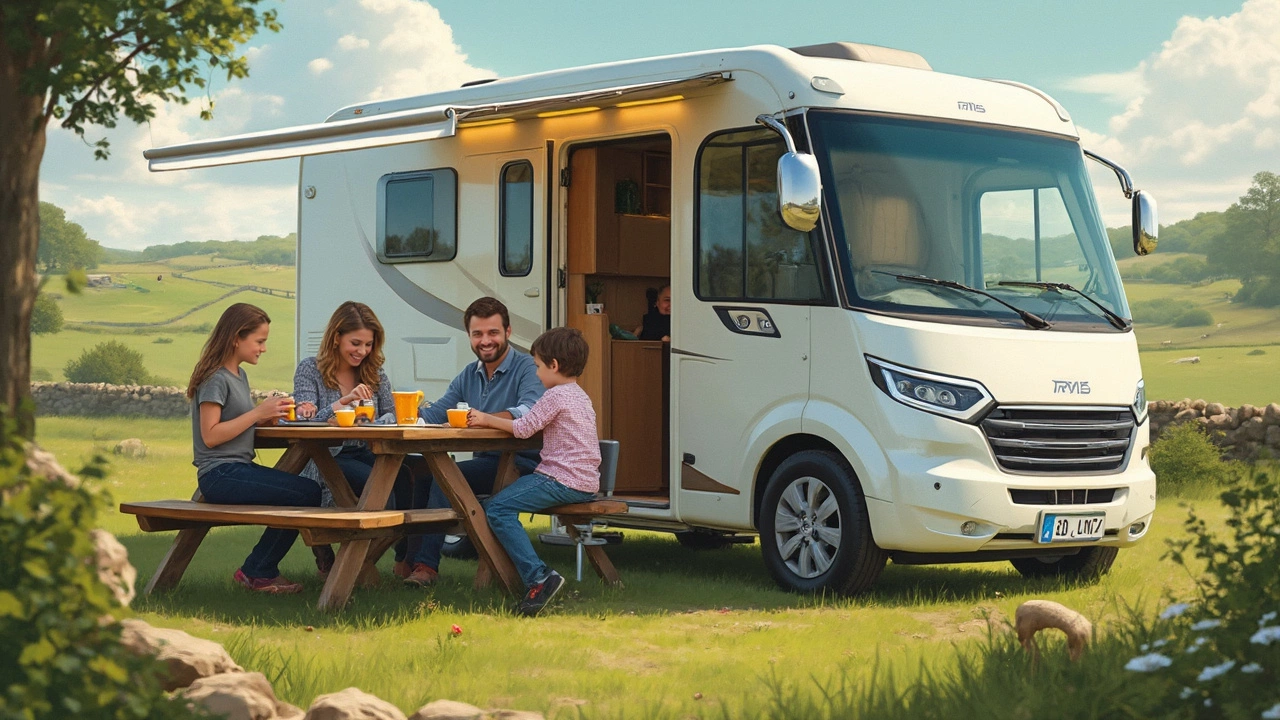RV Living Costs: What You Really Pay For
Thinking about hitting the road in a motorhome? Before you buy or rent, you need to know the real costs. It’s easy to imagine a cheap adventure, but the bills can add up fast if you don’t plan.
In this guide we break down the biggest expenses, show where hidden fees hide, and give simple tricks to stretch your budget. Whether you’re a weekend warrior or planning to live full‑time on wheels, the numbers below will help you stay in control.
Fixed Expenses You Can’t Avoid
The first group of costs stays the same month after month. Most of them are easy to calculate, so you can add them to a spreadsheet right away.
- Motorhome purchase or rental – Buying a used RV can range from £10,000 to £80,000. A weekly rental usually starts at £200, but long‑term deals can drop to £400‑£600 per month.
- Insurance – Legal requirement and peace of mind. Expect £300‑£800 a year for basic coverage; add extra for contents or breakdown assistance.
- Road tax and MOT – Road tax is based on vehicle weight, roughly £150‑£300 a year. An MOT is required every 12 months and costs about £70‑£110.
- Storage – If you can’t park at home, a secure yard or service centre will charge £30‑£70 a month.
- Loan repayments – If you finance the motorhome, factor in interest. A typical 5‑year loan on a £30,000 RV might be £150‑£200 a month.
These fixed items set your baseline budget. Add them up and you’ll know the minimum you need each month just to keep the RV alive.
Variable Costs and Smart Savings
Now for the expenses that change based on how and where you travel. This is where you can shave off the most pounds.
- Fuel – Motorhomes sip fuel like a big van. Expect 8‑12 mpg on highways and 6‑8 mpg on winding roads. Calculate weekly mileage and use a fuel cost calculator to see the real impact.
- Campsite fees – Prices vary from £10 a night at basic sites to £45‑£70 at luxury spots with full hookups. Look for discounts on longer stays or memberships like the Caravan Club.
- Electricity and water – Most sites include a basic electricity allowance; extra kWh cost £0.15‑£0.30 each. Keep a portable battery or solar panel to reduce reliance on the grid.
- Maintenance and repairs – Set aside at least £100‑£150 a month for routine service, tire wear, and unexpected fixes.
- Food and groceries – Cooking in the RV saves money versus eating out. Stock up on bulk items and plan meals ahead of time.
Simple habits can cut costs dramatically. For example, filling up on the outskirts of towns usually saves 10‑15% on fuel. Using free ‘wild camping’ spots where allowed can eliminate campsite fees entirely, but always check local rules first.
Lastly, track every expense for at least a month. Use a phone app or a basic spreadsheet with columns for fixed, variable, and one‑off costs. Seeing the numbers side by side helps you spot waste and decide where to invest more, like a better solar kit or a fuel‑efficient driving style.
With these figures in mind, you can set a realistic budget, plan trips that fit your wallet, and avoid nasty surprises on the road. Remember, the freedom of RV life comes from knowing exactly how much freedom costs.
RV Living Costs: How Much Does It Really Take to Live Fulltime in a Motorhome?
Curious about the real costs of living fulltime in an RV? This article breaks down actual expenses like site fees, utilities, travel, and insurance. Find out how different choices and habits can make or break your budget, and pick up simple tips to keep your costs in check. We'll look at what drives up costs and how full-timers save money. By the end, you'll know what to expect and how to avoid the most common money traps on the road.
